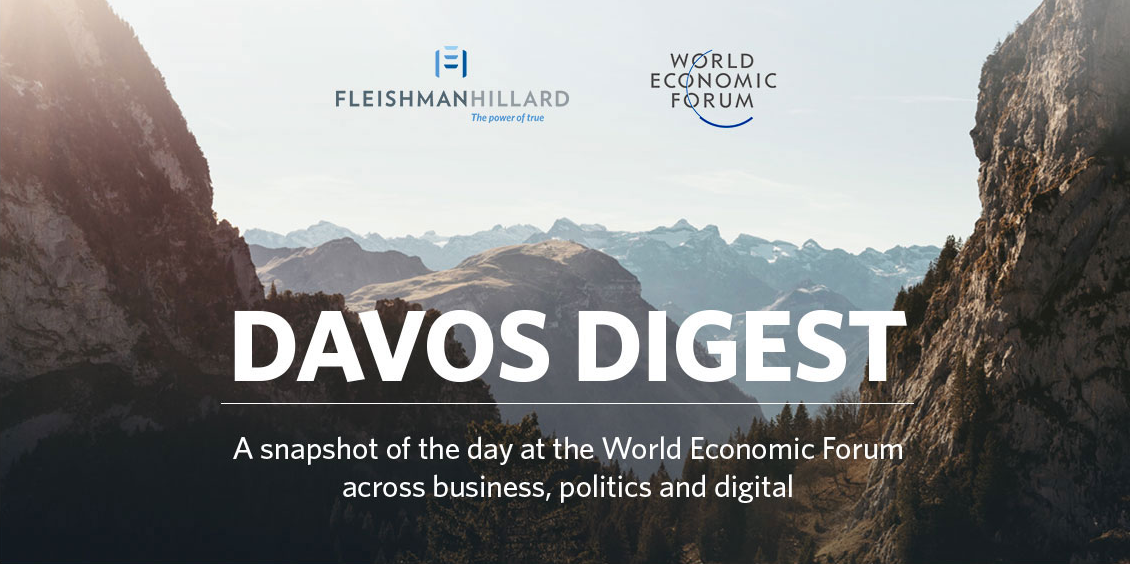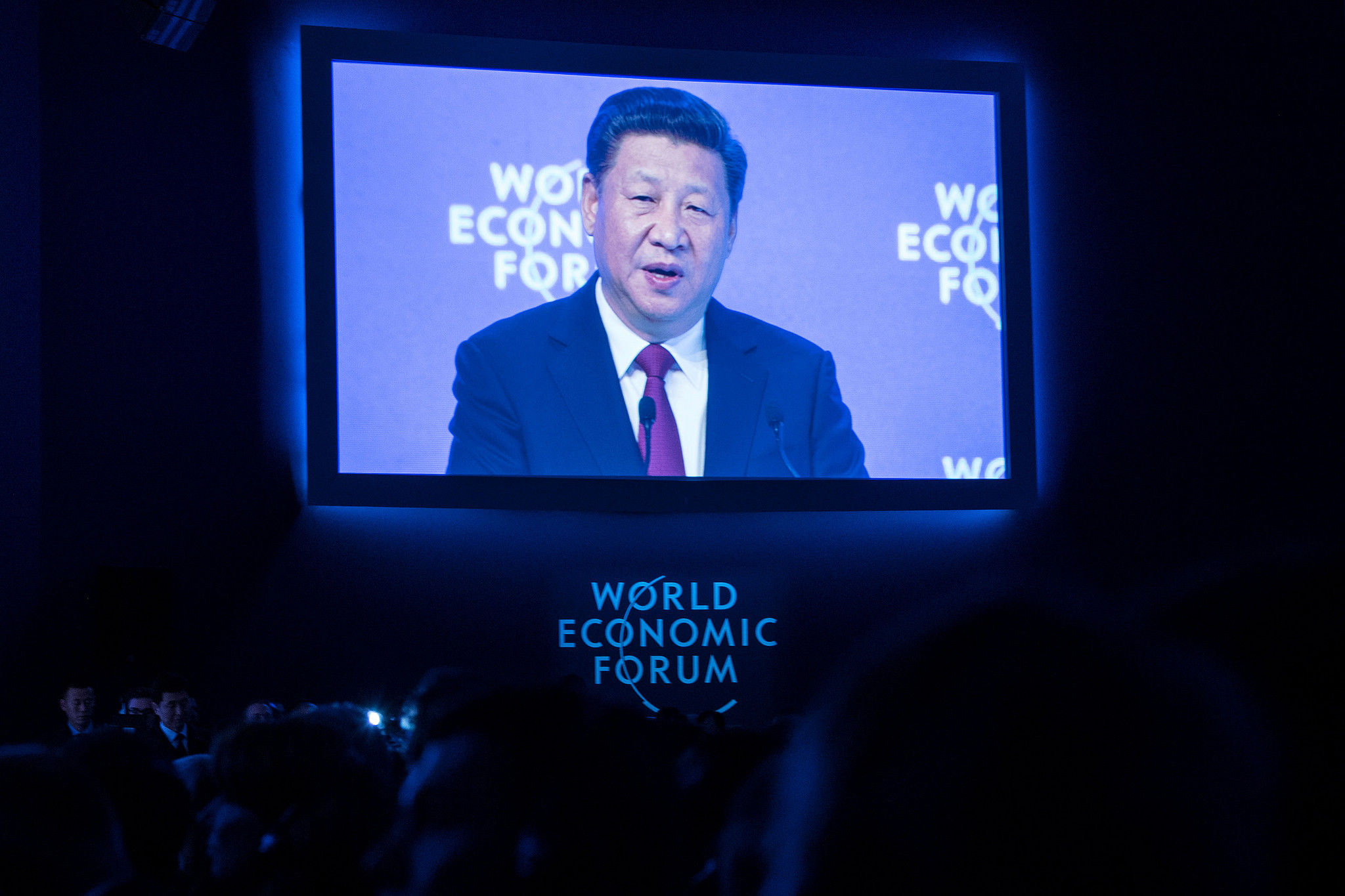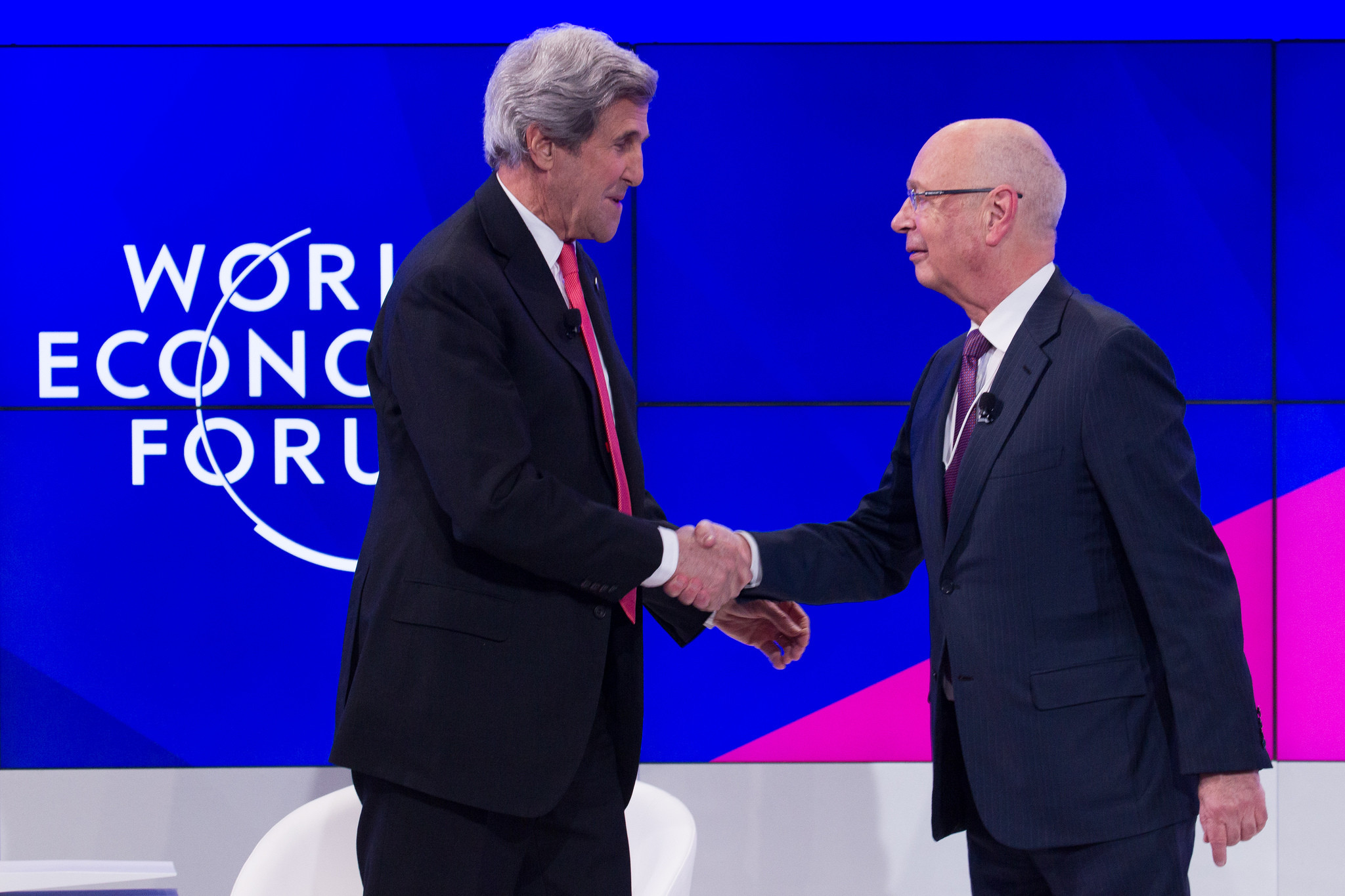Davos Digest #2

Good morning! And we’re off…
Against a backdrop of populist sentiment and anti-elitism, this was never going be just another Davos. And into the fray has stepped the leader of the world’s second largest economy, China. With its first presence in 25 years, all eyes (and ears) were tuned to President Xi Jinping’s steer on the global economy.
The big news from Day One at Davos was the clash of this Presidential heavyweight with another from across the world. The conflicting opinions of US President-elect Donald Trump and China’s Xi Jinping, on issues around globalisation and free trade, dominated the headlines.
For business, 2017 could be about complying with the “new normal” – major economic changes and structural reforms in economies and industries could significantly change the landscape forever. There could be a shakeup in business and industry precipitated by the digital economy.
In technology, as with last year’s forum, the Fourth Industrial Revolution continued to play a popular note with attendees and media alike. With a particular focus on AI Microsoft’s CEO Satya Nadella claimed that the trend could kick start weak economic growth, rather than create a wealth disparity.
And Davos wouldn’t be complete without its fair share of celebs. With Shakira and Joe Biden getting the show under way, Davos didn’t disappoint.
For your reading pleasure, we’ve captured some key insights from the first day. Stay tuned for more to follow tomorrow….
Digital & Tech
The fourth industrial revolution continues to be a major topic of discussion this year, from how it will impact women to how it will reshape human norms and ideas. But it was in yesterday’s opening speech that Chinese President Xi Jinping captured the mood – calling for world leaders to “relentlessly pursue innovation” – he pointed to recent technological advances as a means of achieving new growth in a stagnant global economy.

AI was never far from discussion on day one. Touted as both a catalyst for global growth by none other than Microsoft’s CEO Satya Nadella who stressed a global need for the technological breakthrough. He batted off suggestions that this could create a greater wealth divide, pointing to trends of technological advance in the past. So that’s that then…
Fintech made its presence felt in the opening day too with the UK’s fintech industry leading the way on responsive leadership. According to the CEO Lawrence Wintermeyer, leader at Innovate Finance, collaboration between banking experts, government officials, startups and researchers, London’s leadership in fintech is “nothing short of visionary”.
Closely associated with fintech, the future of finance was debated at length on day one. Deutsche Bank’s CEO John Cryan blamed regulatory pressures for a lack of innovation among traditional financial institutions, claiming that “innovation in financial services has been frowned upon for a decade or so”. Tell that to the fintech unicorns appearing later in the week.
And technology failure of the day award goes to….Doubts over humanity’s place in the world of AI were assuaged during the open forum – “What is it to be human in the fourth industrial revolution?” – when the WEF live feed was interrupted in its early stages due to a “human error”.
The Planet of the Elites: Ideas, Challenges and Leadership
This year’s opening session hosted one particularly familiar face – outgoing Secretary of State John Kerry spoke with the founder of the World Economic Forum, Klaus Schwab, on diplomacy in an era of disruption. Defending Obama’s legacy, he told an audience that technology has replaced 80% of jobs not trade while reminding Israel they have to co-operate in peace negotiations if they wish to see any change – twenty years ago the then Senator John Kerry spoke to a Davos audience about building bridges between NATO and Russia, and how to build peace in the Middle East. Twenty years on and the tune hadn’t changed. At least Biden has been consistent. In a world of change, some things remain the same.

Davos welcomed back another familiar face in a different capacity – Anthony Scaramucci, the founder of SkyBridge Capital, and now a senior adviser in the President-elect’s transition team. He told a panel that 97% of the world had not benefitted from the global financial recovery, and recalled the “desperation” felt by many who attended Trump rallies during the campaign.
And with women accounting for only 20% of attendees, the gender debate rumbles on. While the balance is an improvement on last year, a quick look around the news rooms and panel debates of Davos didn’t feel a whole lot different. Executive Director of UN Women was also set to drive home the message that women’s economic empowerment should be at top of the Davos 2017 agenda.
Picking up from last year, the Fourth Industrial Revolution (4IR) was a consistent theme too. The founder of World Economic Forum, Klaus Schwab, wrote that it is “characterised by a fusion of technologies that is blurring the lines between the physical, digital, and biological spheres”.
The digital economy has become a key pillar of the global economy. Leaders from financial institutions, champions of diversity, cloud computing dynamos and even the General Motors CEO spoke to audiences about the imminent arrival of the 4IR and the necessity to integrate the infrastructure of the digital economy into our everyday lives.
A theme that came up time and again, was that the digital economy has up until now been consumer centric. This is changing. Yesterday’s discussion stressed the necessity to shift the debate to business to businesses (B2B) impact. And we heard from Bain and Co Chairman Orit Gadeish that trust will be the key ingredient in 2017 to advance the B2B digital economy.
What’s Happening at the Business End?
Here Xi comes: Day one, and a new hero has emerged for global business.
The leader of the world’s second largest economy, President Xi Jinping, gave a powerful speech on the global economy, elaborating that there was “no point in blaming globalisation” and that “no one will emerge a winner in the trade war.”
Striking a balance between efficiency and equity, he pledged China would not seek to benefit from devaluation of its currency and defended free trade. “We are not jealous of others’ success and will not berate others, but we will open our arms to other countries who want to join China’s express train of trade”.
Big deals also made headlines on day one. The announcement of the merger between Italy’s Luottica and France’s Essilor was a shot in the arm for the Euro Zone, with commentators pointing to it as reason for optimism. The Franco-Italian US$49bn deal is the creation of another monopoly, this time in the production of branded sunglasses – perhaps something to ensure they are not blinded by all that snow.
With inflation on the up, driven by a rally in oil prices, monetary policy was at the fore on day one. Central bank normalisation isn’t as we know it. Central banks globally may not be pumping in quite so much monetary stimulus as inflation picks up, but they’re a long way from returning to normality, according to Swiss National Bank President Thomas Jordan, UBS AG Chairman Axel Weber and Anthony Scaramucci, an aide to President-elect Donald Trump.
#WEF17 is Trending at 16,000 Tweets/Hour but who is Cutting Through the Noise?
We found someone finally to talk to that won’t judge. KPMG have set-up a Facebook messaging bot that visualises the global trends of the conversations at the event. We tried to ask some personal questions, but WEFLive keeps it all serious. Strike up a conversation with the AI by visiting https://365.weflive.com
Philips headed straight to the most important audience, 8 year olds, to ask what does the future of health look to them. Their answer, robots!
Tata Consultancy Services launched the #DigitalEmpowers thought leadership platform to explore the power of digital to create a more inclusive society.
But the biggest brand win on the first day of #WEF17 has to be Sharika, her personal story of poverty in her home country set the Twitterverse alight.
(Disclaimer: Tata Consultancy Services is a FleishmanHillard client, Philips is a client under the OneVoiceConnect brand)

Today at Davos…
- Cyber security and cybercrime will be a running theme of the day
- Ginni Rometty, Chairman, President and CEO of IBM is due to speak on business transformation in the era of cognitive computing
- Jack Ma, the founder of Alibaba, will be discussing the future of online trade and globalisation
- Joe Biden will be making a special address
- Celeb spot of the day – Jamie Oliver will be speaking on the “healthy and sustainable food revolution”
Find Out More
-
Platinum CMS Award
March 13, 2024
-
Changing Communications Tack at Mobile World Congress
February 21, 2024


